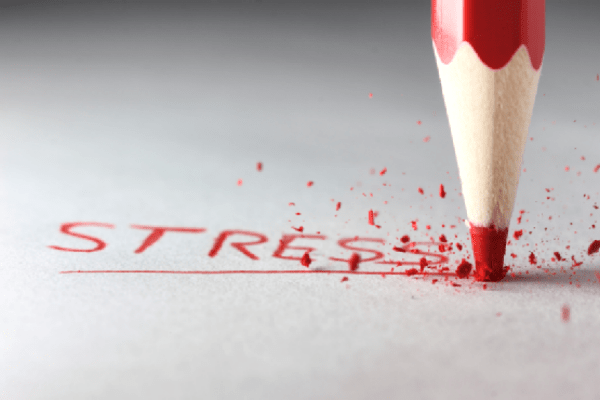 In his 45th and most recent book, mind-body pioneer Deepak Chopra explores what's on the other side of the veil that separates life and death. Beliefnet editor Laura Sheahen recently talked to Chopra about what will happen to him after he dies, how it is that people can talk to their pets with their minds, and how every moment in your life has a lingering karma that will show up on the "Akashic record" of your soul.
In his 45th and most recent book, mind-body pioneer Deepak Chopra explores what's on the other side of the veil that separates life and death. Beliefnet editor Laura Sheahen recently talked to Chopra about what will happen to him after he dies, how it is that people can talk to their pets with their minds, and how every moment in your life has a lingering karma that will show up on the "Akashic record" of your soul.
What do you believe will happen to you the moment you die?
 |
What Will Happen When I Die |
What sort of choices do you think there might be in the afterlife? What would you hope for?
More creativity, more insight, more understanding from relationship, more evolution, a period of incubation, and then a choice of whether I want to make this journey again.
So you do have the choice about coming back to a human life?
Right.
There's a poem by Billy Collins that says everyone gets the afterlife they believe in.
Yeah, I totally believe that.
The subtitle of your book is "The Burden of Proof," and you spend a long time in the book talking about near-death experiences. What, to you, is the strongest proof that we continue to exist after death?
There are many. One is near-death experience, and the second are the stories that are recounted by children who've experienced reincarnation--they recall accurately previous lifetimes and the episodes and incidents can be corroborated. The third are the conscious death experiences of the bardo Tibetan rituals. And fourth is afterlife experiments where, through mediums, contact is made with a disembodied consciousness. The conversation many times accurately reflects what's happening in the person who's suffered the loss.
Then there are the theoretical constructs that come to us from information theory and from the understanding that consciousness is the ground of being. Research from those who explore consciousness say it does not have a location. Being non local, it cannot be created or destroyed.
Your book says “your first kiss has an afterlife.” That it's not just a memory that would die when your brain cells disintegrate in the grave.
 |
On the Afterlife of Memory |
A salad.
As you're thinking of that salad, you can simply imagine the taste and see yourself where you were having the salad, right?
Yes--
If I went inside your brain, I wouldn't find any neurons or synaptic networks that would code for that. Until I asked you that question, those memories did not exist in your brain. Now, as soon as I asked you the question, the possibility waves from past experiences localized as space-time events in your brain.
Where do we go after we die? Same place where that salad was before I asked you the question.
Karma, when properly understood, is just the mechanics through which consciousness manifests. Karma is experience, and experience creates memory, and memory creates imagination and desire, and desire creates karma again. If I buy a cup of coffee, that's karma. I now have that memory that might give me the potential desire for having cappuccino, and I walk into Starbucks, and there's karma all over again.
Karma, memory, and desire are just the software of the soul. It's conditioning that the soul undergoes in order to create experience. And it's a cycle. In most people, the cycle is a conditioned response. They do the same things over and over again. So, karma, in that way, is limiting to creativity. But, once you become aware and you can shift your internal reference point, not to the person you believe yourself to be, but as the silent witness of karma, memory, and desire, then you can manifest a different reality because you are, in fact, the actor, the protagonist, the antagonist, the director, the choreographer, and all the other characters in the drama that you call life.
In terms of bad karma, can anyone except the individual person themselves expiate that bad Karma, or does it have to be the person themselves?
There's no person in the deeper reality, so the question is really not relevant. Karma is just experiences that make for evolution or experiences that retard evolution. So, even if the karma is so-called "bad," it serves a purpose. That expanded awareness allows you to go beyond to create something else. So your karmic debt can be paid, or it can be transmuted, or it can be transcended. But, the whole point of karma is to recognize that the whole experience of being an individual self is, in fact, the bondage of karma.
When you're "in" yourself you're in this bondage, and you have to realize it to get yourself out. No one else can do it for you?
Right. But you can get to a certain place any moment where there is no karma. And that is transcendence. Karma is only in space time and causality. Your real self resides non locally.
You mention pet telepathy in the book: the idea that pet owners, if they're thinking of taking their dog for a walk--even if the dog is many, many rooms away--the dog will get excited and start wagging its tail. How do you connect pet telepathy to the afterlife?
That is also the idea of non local correlation. The dog and the owner, because they're spiritually and emotionally bonded, have the simultaneous actualization of information. In this case, they have the thought,"let’s go for a walk," at the same time. It's a very fundamental activity in nature called "non local correlation" where different space-time events correlate with each other without sending energy or information signals. The same thing sometimes happens when a mother and a baby are very emotionally and spiritually bonded, and the mother is in one location and the baby is in another. When the baby cries with hunger, the mother's breast leaks with milk.
You say that angels are processors of consciousness and also projections. Could you describe your view of angels?
 |
Angels Are Energies... |
Angels are energies, information states, symbolically represented, maybe as a picture or as an idea that we have, but they are archetypal concentrations of psychic energy in the non local domain of our collective consciousness. As a result, they are able to help us do things that would be beyond our personal endeavor.
So angels can physically help us?
They help you achieve great and wondrous things which you would not be capable of if your self-identity was just your personal self. To see angels, to have the experience of the miraculous, is nothing other than the shift of your identity from a skin-encapsulated personal self to an archetypal self that embodies much higher states of awareness.
They are not even differences or irreconcilable things. It's like you're listening to rock 'n’ roll, or you're listening to Beethoven.
Consciousness projects itself with all these realities, and they're equally valid. It's not this is true and that's not true. Think of consciousness as set up to manifest maximum diversity. Just like in the physical universe there's maximum diversity, so too in the afterlife.
Early in your book you say that “desire is crucial after death.” I know Buddhists often seek to leave desire behind. Is there any cessation of desire, of personality, and of the "I" in your belief system?
No. “I” never goes. Only “I am this or that” goes. Ultimately, enlightenment is for you to always be grounded in "I," but the limited, "I am this or that," goes.
You had a sense of "I" when you were a baby. You had a sense of "I" when you were a teenager. You have a sense of "I" now. You'll have a sense of "I" when you are an old person. But, in each of these cases that sense of "I" will be identifying itself with a different person. The baby's not the person you're in now. You have a different body, different ego, different personality, different thoughts, and a different way of looking at the world.
And can you talk about the role of desire in the afterlife?
It is the same as the role here. Desire is what causes potential consciousness to manifest as "this" or "that." Now, you cannot suppress desire, but you can come to a stage where you have fulfilled all your desires and, therefore, there's nothing more, or you can come to a stage where you transcend desire, or you can come to a stage where some desires are not important and others are, but desires are the mechanics of creation itself.
What experiences have you had in terms of being in the Akashic field or trying to contact it, even in your “skin-encapsulated” self, as you put it?
I very frequently see my body and my mind as separate from me. I see my body and my mind as the instruments through which I'm broadcasting myself, but, I'm not in it. It's something that I use to localize myself. And frequently, when I look at something, I see it from a more expanded point of view in that my eyes and my ears are the eyes and ears of the universe looking at itself.
Have you ever tried to reach out to another person's consciousness?
Many times, many times with my parents, with friends, with friends of friends.
What do you think the world would be like if everyone understood and believed that the afterlife will be how you describe it in this book?
The main thing would be first, less fear and, therefore, more compassion, understanding, and love. More creativity, less conflict. Because in the deeper reality we are all members of the same being. And when you really understand that, there's nothing to worry about, nothing to fight about, and nothing to really, ultimately suffer about because suffering is born of the illusion of separation.
 |
Who We Really Are |

